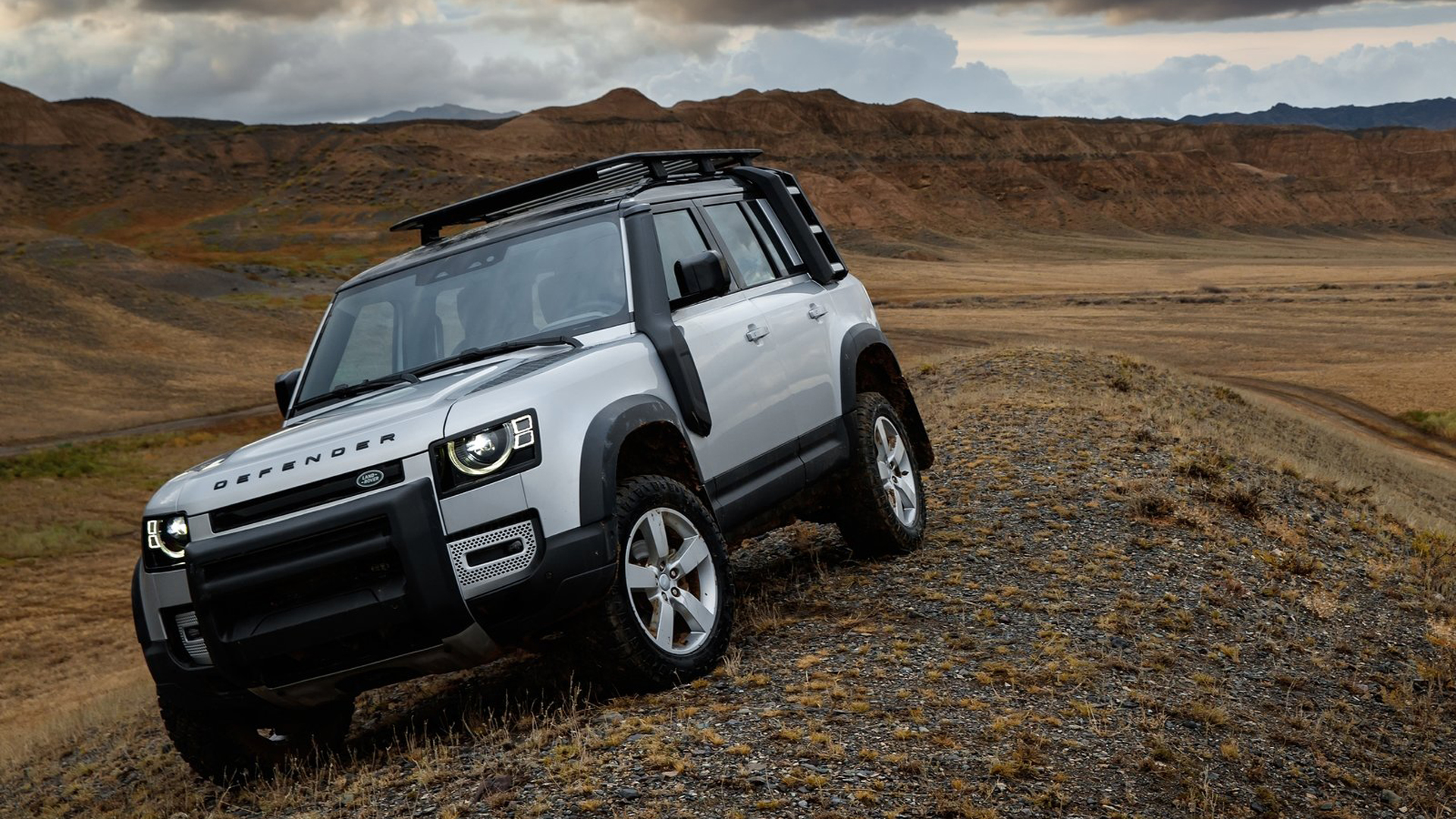

Welcome back to Speed Lines, The Drive’s roundup of what matters in the world of transportation. It’s Friday, so that’s good news. The bad news? Almost everything else, but we will get through it together.
Bad News For JLR
Jaguar Land Rover has a bigger stack of problems than a lot of automakers these days. There’s a great deal of uncertainty over Brexit (and how that will affect its parts, production and sales infrastructure), declining sales in the U.S. and China and a drop in demand for diesel cars in Europe. It’s been showing some signs of recovery since late last year, but I think it’s still fair to call the automaker “financially troubled” at present.
So the last thing JLR needs is the hit from the coronavirus outbreak, which will affect every automaker eventually. Indian parent company Tata warned investors today that lower profits for 2020 are likely as the company deals with plant shutdowns and empty dealerships in China. Here’s Reuters, emphasis mine:
“Recognizing the present situation is highly uncertain and could change, the reduction in China sales resulting from the coronavirus presently is estimated to reduce Jaguar Land Rover’s full year EBIT margin by about 1%,” it said.
China is also a major hub for vehicle parts production and a prolonged shutdown at plants has disrupted auto supply chains affecting carmakers in all parts of the world.
“Suppliers in China are resuming operations but remain below full capacity,” Tata said, adding that JLR has managed to avoid potential parts shortages by working closely with its suppliers and with some increased use of air freight.
JLR has been flying Chinese parts in suitcases as well to Britain to maintain production. Tata Motors warned in January the coronavirus could impact its profit margin forecast of around 3% for the JLR unit for the fiscal year 2020 at a time when it was making progress on a turnaround plan to improve sales in China.
That’s been reported in other places since late February when the outbreak began. You can’t knock the hustle, at least.
Huge Dip In Oil Demand
The other trend we’re seeing is that in China, with people largely staying home and not traveling, there’s a massive drop in petroleum use and demand. Interestingly, this has meant an improvement in the country’s notoriously poor air quality.
Here’s more from Gizmodo:
IHS Markit, a London-based financial data group that hosts a major energy conference every year (which it canceled due to the outbreak), published a research alert on Thursday on how the first quarter of 2020 is treating oil. And it shows a serious shift in the global market. COVID-19, the formal name for the virus, has brought the Chinese economy to a halt. As the world’s largest importer of oil and gas, that’s sent the fossil fuel sector into a tailspin that could worsen as other nations also struggle to contain the outbreak.
[…] World oil demand for the first quarter of 2020 will be 3.8 million barrels of oil a day lower than a year earlier, a demand reduction that’s the single biggest quarterly drop on record. And that’s not just due to China’s economy on pause. The coronavirus is impacting parts of Europe, Japan, South Korea, the Middle East, and North America.
“This is even bigger than what we saw at the peak of the 2008 crisis,” Jim Burkhard, the head of oil market research at IHS Markit, told Earther. “What’s also different is how instantaneous this was because China basically switched off large sectors of its economy almost overnight. That’s why we’re calling it an instant demand shock.”
If this kind of thing continues, and it looks like it’s just beginning, one wonders when we might see a coronavirus-driven recession.
GM’s Android Approach To Tesla’s Apple
One more bit from Bloomberg about General Motors’ big battery announcement this week, and I think this is an interesting way to frame the automaker’s approach: in focusing on scale and variety, it seeks to become the Android-like mass alternative to the more premium Tesla.
For GM or any other automaker that wants to take on Tesla in the EV race, the battery is vital. Its cost can put the car out of reach for many consumers and undermine its chances of profitability before the vehicle ever reaches a showroom. And by Barra’s admission, if that battery can’t make a car go 300 miles on a single charge—a bragging point that only Tesla has with any model on sale right now—most consumers won’t consider it. But if GM pulls off this battery coup, and consumers are persuaded to come along, the Detroit automaker may have what established carmakers have been seeking for several years—an Android-like antidote to Tesla’s position as the iPhone of electric cars.
“What matters more than anything is battery cost. If you can get cost down, you can get better range. The big automakers like GM have an advantage in scale and global reach,” says Colin McKerracher, head of transport analysis for BloombergNEF. GM has made it clear, he says, that “they aren’t giving up.”
Worth a read in full.
On Our Radar
‘Almost Without Precedent’: Airlines Hit Hard by Coronavirus(NY Times)
Ex-Uber self-driving head files for bankruptcy after being ordered to pay Google $179 million (CNN)
Tesla wins approval to sell longer-range China-made Model 3 vehicles (Reuters)
Read These To Seem Smart And Interesting
What Happened to ‘Wayne’s World’ Star Tia Carrere? (Vice)
No Cell Signal, No Wi-Fi, No Problem. Growing Up Inside America’s ‘Quiet Zone’ (NY Times)
Coronavirus Fears Put Global Pet Adoptions at a Standstill (The City)
Your Turn
Can GM become the Android to Tesla’s Apple? It has the manufacturing scale to do it, something Tesla is still working to build.